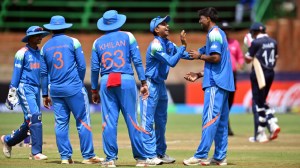In its infancy
India needs regulatory laws to protect the rights of both surrogates and clients
India needs regulatory laws to protect the rights of both surrogates and clients
An article in The Gujarat,the state governments mouthpiece,makes an enthusiastic case for surrogacy revenue pouring into the state through reproductive tourism,empowerment of the women employed as surrogates,an answer to the prayers of childless couples. But,coming days after the death of a surrogate mother,Premila Vaghela,in the eighth month of her pregnancy in Gujarat,the article also frames a chilling lacuna in our laws. Banned in many countries,surrogacy was legalised in India in 2002. A cheap,legal option for couples,it has ballooned to the size of a small industry. Gujarat,and especially Anand,with a large number of IVF and surrogacy clinics,has been the hub for this boom. Now more than ever,India needs regulatory laws to protect the rights of surrogates and clients. Yet,the Assisted Reproductive Technologies Regulation Bill,2010,lies in cold storage.
Surrogacy raises ethical questions that are yet to be fully settled,which might explain the governments reticence. Wombs for rent,outsourcing pregnancies,baby farms is how some of its shriller critics describe the practice. Motherhood cannot be farmed out for a price,many feel. Yet,high rates of infertility all over the world have ensured a growing demand for surrogates. They are certainly backed by the courts a Supreme Court order in 2008 said commercial surrogacy was permitted. In 2009,the Gujarat High Court recognised the nationality of the surrogate mother while determining the childs citizenship.
Many women who become surrogates are poor and unaware of the possible medical complications. In a country where maternal mortality rates are among the highest in the world and there are few reproductive rights,unregulated surrogacy could be disastrous,rather than empowering.
- 01
- 02
- 03
- 04
- 05































